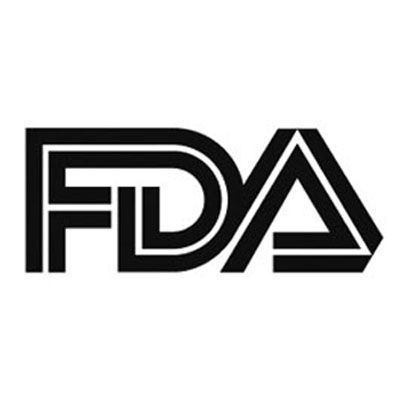FDA to Review sBLA for Frontline Cemiplimab Plus Chemotherapy in Advanced NSCLC
The FDA is reviewing a supplemental biologics license application for cemiplimab-rwlc in combination with chemotherapy as a first-line treatment option for patients with advanced non-small cell lung cancer.

The FDA has accepted a supplemental biologics license application (sBLA) for cemiplimab-rwlc (Libtayo) in combination with chemotherapy as first-line treatment in advanced non-small cell lung cancer (NSCLC), according to a press release by Regeneron.1
The application will undergo a traditional review by the FDA, and the target action date for FDA’s decision has been set for September 19, 2022.
Results from the randomized, multicenter phase 3 EMPOWER-Lung 3 trial of frontline cemiplimab and platinum-based chemotherapy support the sBLA. In the study, patients treated with cemiplimab/chemotherapy showed an improvement in overall survival (OS) compared with patients who received chemotherapy alone.1,2
Patients in the study were randomized 2:1 to receive either cemiplimab with chemotherapy or chemotherapy alone. A total of 312 patients were included in the cemiplimab arm and were treated with a 350 mg dose by intravenous infusion every 3 weeks for 108 weeks in combination with platinum-doublet chemotherapy every 3 weeks for 4 cycles. The other 154 patients were given matching placebo in combination with chemotherapy.
In addition to the primary end point of OS, EMPOWER-Lung 3 investigated progression-free survival, objective response rate, duration of response, best overall response, the incidence of treatment-emergent adverse events, and the incidence of dose-limiting toxicities as secondary end points.
Baseline information showed that of the overall patient population, 30% of patients had tumors with <1% PD-L1 expression, 38% of the study population had tumors with 1% to 49% PD-L1 expression in, and 33% of patients had tumors with ≥50% PD-L1 expression.
In 466 patients with advanced NSCLC, cemiplimab in combination with chemotherapy reduced the risk of death by 29% compared to chemotherapy alone in the study subjects (HR, 0.71; 95% CI, 0.53-0.93; P = .014). The median OS observed with cemiplimab was 22 months (95% CI, 16 to not evaluable) versus 13 months (95% CI, 12-16) with chemotherapy. The study was stopped early due to the positive OS result.
In terms of safety, no new safety signals observed. Treatment discontinuation occurred in 5% of the cemiplimab and chemotherapy arm compared with 3% of the chemotherapy-alone arm. Immune-mediated AEs were reported in 19% of the experimental arm.
Cemiplimab, a human monoclonal antibody that targets T-cell immune checkpoint receptor PD-1, is already FDA approved for the treatment of as first-line monotherapy treatment for adult patients with advanced NSCLC whose tumors have high PD-L1 expression (tumor proportion score ≥50%), as determined by an FDA-approved test. The agent also has indications for skin cancers and is being investigated as a potential treatment for various solid tumor and hematologic malignancies.1
References:
1. FDA accepts for review Libtayo® (cemiplimab-rwlc) in combination with chemotherapy for first-line treatment of advanced NSCLC. News release. January 19, 2022. Accessed January 19, 2022.https://bit.ly/3tHlgQK
2. Phase 3 trial of Libtayo® (cemiplimab-rwlc) combined with chemotherapy stopped early due to significant improvement in overall survival in patients with first-line advanced non-small cell lung cancer. News release. Regeneron Pharmaceuticals, Inc. August 5, 2021. Accessed August 5, 2021. https://bit.ly/3Acasdh